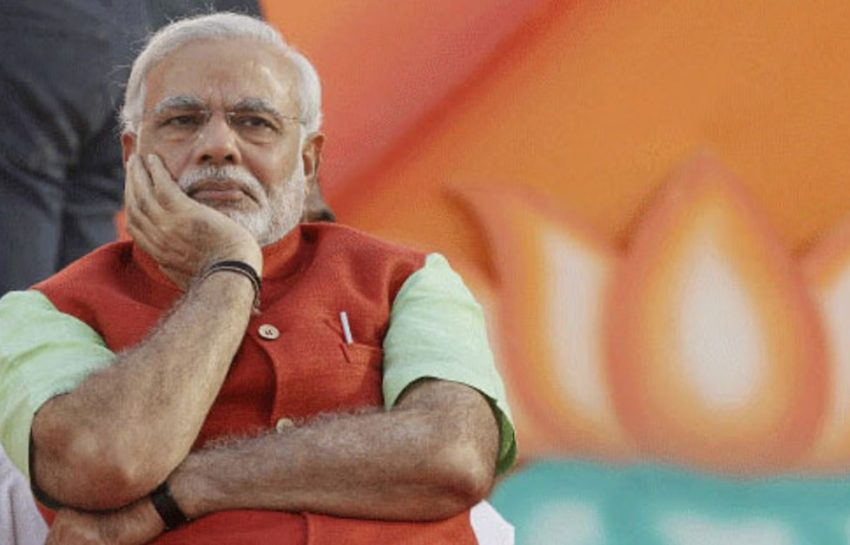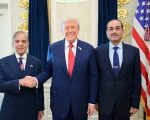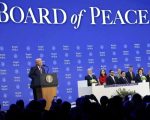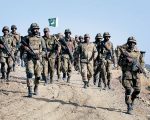Right then. As the machinery of international diplomacy grinds on, often with a predictable hum, one finds oneself occasionally confronted by a silence, a gap in the expected proceedings that speaks with a volume far exceeding any pronouncements. We are, I believe, standing before such a moment as we consider the forthcoming G7 summit, scheduled for this June in the Canadian capital, Ottawa. My attention, and indeed that of many observers of global affairs, is drawn to a rather conspicuous, and frankly unsettling, absence from the anticipated guest list. For the first time in a significant number of years, it appears the Prime Minister of India, Mr. Narendra Modi, will not be gracing the event with his presence.
And look, this isn’t just some small thing you can brush aside, like a little note scribbled in the margins of a history book about these big summits. The G7 – yeah, okay, it’s got its critics and it’s not perfect, but it still means something, doesn’t it? It’s a pretty powerful symbol when you get these big, economically advanced democracies sitting around the same table. And let me tell you, those ‘plus one’ invitations they send out? People who follow this stuff, they watch who gets those like a hawk. It’s a real tell-tale sign, you know? It gives you a proper sense of which way the wind’s blowing in global politics, who’s considered a key player, and who’s in with whom.
So, from what we’re hearing, the guest list is already taking shape. Invitations have definitely gone out, and we know they’ve been accepted by a real mix of countries. You’ve got South Africa – obviously a crucial voice coming from the African continent. Then there’s Ukraine, and honestly, their situation is right at the heart of every major global discussion at the moment, so no surprise there. And Australia, a really reliable partner down in the Indo-Pacific. So, you see, the expected, or at least the very understandable, names are already on that list. Yet, concerning India, the silence from Canadian officialdom is, to put it mildly, telling. Reports consistently suggest that no invitation has been dispatched, and when questioned, Canadian representatives offer a masterclass in diplomatic reticence. The message, however obliquely conveyed, seems uncomfortably clear: the relationship between Ottawa and New Delhi is not merely strained; it appears to have suffered a profound fracture.
To understand this unwelcome development, one must peer behind the typically opaque curtain of diplomatic exchange. It is no secret that a deep and alarming rift has emerged. Canada has made accusations of an almost unprecedented nature, publicly alleging the involvement of the Indian state in the assassination of Hardeep Singh Nijjar, a Sikh activist, on Canadian soil. Such an accusation, implicating one sovereign nation in an extrajudicial killing within the territory of another, is a charge of the utmost gravity, striking at the very foundations of international law and diplomatic norms. This central, explosive allegation is, of course, compounded by a preceding series of diplomatic standoffs – expulsions of diplomats, sharp rhetoric, and what can only be described as a chilling of relations. Add to this unsettling mix persistent allegations of surveillance targeting minority communities and activists within Canada, and an undeniable escalation of community-level tensions, and the Canadian government’s current posture becomes, if not palatable, then certainly comprehensible. It would, in this deeply troubled context, be frankly astonishing if Ottawa were not reconsidering India’s customary seat at this particular table.
From the Indian side, the Ministry of External Affairs has adopted a posture of studied nescience, stating there is “no information” regarding a potential visit by Prime Minister Modi. One might interpret this in various ways. However, whispers emanating from circles closer to New Delhi’s decision-making echelons suggest that an invitation, were it even to be discreetly offered at this late stage, might not be met with alacrity. There appears to be a sentiment within India that the Canadian environment, and perhaps by extension the G7 summit itself under Canadian stewardship, might offer more intense scrutiny and uncomfortable questioning than the desired spotlight of global statesmanship. It is perhaps a pragmatic, if somewhat defensive, calculation – anticipating a potential diplomatic minefield and opting for avoidance.
Right, and you know, what makes this whole situation really, properly hit home is when you rewind just a little bit, only a matter of months ago, really. It feels like yesterday, doesn’t it? Last year, with Mr. Modi at the helm, India was absolutely basking in the spotlight, hosting the G20 with such flair, wasn’t it? They were showcasing all these grand ambitions for India on the world stage, even positioning themselves as a ‘Vishwaguru’ – a kind of teacher to the world, if you like. And that whole theme, ‘Vasudhaiva Kutumbakam’ – ‘One Earth, One Family, One Future.’ It sounded so good, so hopeful.
So, to go from that… that real peak of international showmanship and diplomacy… to now, this apparent cold shoulder from a really key group of democratic nations? It just feels like such a sudden, jarring comedown. Honestly, it’s a bit disconcerting, isn’t it? Like watching someone reach the top of a ladder and then suddenly find a few rungs missing on the way back down. It’s quite the turnaround, and not in a good way.
The silence from the G7, in this context, does not simply resonate; it reverberates with uncomfortable implications. It marks, I submit, a subtle yet undeniably serious shift in the diplomatic landscape. Mr. Modi is, it would seem, being sidelined – not merely by a Canadian government with specific and grave grievances, but potentially by a broader consensus within these influential diplomatic circles that certain lines have been crossed.
In our increasingly multipolar world, a world characterised by shifting alliances and the rise of new powers, presence is paramount. To be at the table, to engage, to influence – these are the currencies of international relations. But an absence, particularly one as laden with unspoken meaning as this, can be even more eloquent. It signals a disquiet, a reassessment, perhaps even a quiet form of censure. The G7 has always been an exclusive club, and its guest list, while expanding in recent years to reflect a more complex global order, remains a curated selection. To be omitted is to be sent a message.
What this specific message portends for the longer-term trajectory of India’s engagement with the West, and indeed for the delicate balance of power within the Indo-Pacific, remains to be seen. Is this a temporary chill, a consequence of a specific bilateral dispute, or does it herald a more fundamental realignment, a questioning of shared values and an unwillingness to overlook actions perceived as transgressing fundamental democratic principles? These are the questions that linger in the air, heavy and unanswered.
As we await the summit in Ottawa, the non-attendance of the Indian Prime Minister, should it indeed come to pass as all current indicators suggest, will not be a mere administrative detail. It will be a statement. A quiet, dignified chair left empty can, at times, tell a story more compelling and more concerning than any number of carefully drafted communiqués. In this instance, such an absence might indeed say everything about the current, fractured state of affairs and the challenging path ahead for one of Asia’s most significant powers on the global stage.
Tharoor’s Washington Yatra: Bollywood Theatrics vs. Pakistan’s No-Fake-Agenda Diplomacy














